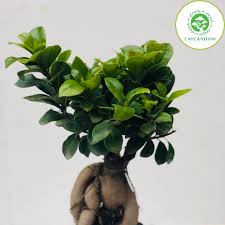
Throughout China’s imperial history, the imperial court served not only as the political center but also as a spiritual hub where religious and ritualistic practices were integral to the governance and daily life of the emperor and his court. Among the most significant practices were ancestral worship and the rituals dedicated to divine deities. These ceremonies, deeply rooted in Confucianism, Taoism, and traditional Chinese beliefs, were considered essential in maintaining harmony between Heaven, Earth, and humankind. The emperor, as the Son of Heaven, was tasked with conducting these rituals to ensure the prosperity of the nation, divine favor, and the continued favor of ancestors.
This article explores the profound significance of ancestral worship and the rituals dedicated to divine entities within the royal court of China. These sacred practices not only reflected the importance of spirituality in the imperial system but also shaped the political and cultural environment of the time.
1. The Role of the Emperor in Ancestral Worship
The emperor of China was seen as the intermediary between Heaven and Earth, a position that carried with it the responsibility of performing rituals that honored both divine beings and ancestors. The emperor’s role in ancestral worship was not only ceremonial but also held deep political significance. By honoring his ancestors, the emperor could claim legitimacy and divine support for his rule.
Ancestral worship was largely influenced by Confucian principles, which emphasized respect for ancestors as a central tenet of Chinese ethics and morality. The Confucian tradition holds that ancestors, by virtue of their roles in the family’s past, continue to influence the well-being and prosperity of their descendants. For this reason, the emperor was expected to show respect and gratitude through ritual offerings and prayers, ensuring their continued favor.
In the imperial court, ancestral worship was conducted at altars that were meticulously set up within the Imperial Ancestral Temple (皇祖庙) in the palace. Here, the emperor would offer sacrifices and perform rites, such as burning incense and bowing in reverence to the spirits of the ancestors. These rituals were believed to maintain a sacred bond between the living and the deceased, ensuring the safety and prosperity of the nation.
The imperial family’s genealogical records were carefully preserved, and ancestral worship was practiced on the anniversary of their death, particularly those of past emperors and important figures within the royal lineage. The emperor would personally lead the ceremonies, underscoring the significance of ancestral worship to his authority. Additionally, the emperor would often extend these rites to honor his royal ancestors’ predecessors, seeking their guidance for his reign.
2. The Confucian Influence on Royal Rituals
Confucianism, which became the dominant ideological force in Chinese society during the Han Dynasty, placed great emphasis on filial piety, or xiao (孝), and the veneration of ancestors. In Confucian thought, this practice was not limited to the individual but was considered a collective responsibility that ensured the moral and spiritual integrity of the family, community, and nation.
Confucian thought laid the foundation for the state-sponsored rituals held in the Temple of Heaven (天坛) and other state-sponsored religious sites, where the emperor would perform sacrifices and prayers for Heaven, Earth, and his ancestors. These sacred spaces were imbued with ritual significance, as they symbolized the emperor’s role as the guardian of both divine and ancestral laws. In these temples, a grand ceremonial altar would be erected, and offerings such as grains, fruits, and animal sacrifices would be presented to the spirits of Heaven, Earth, and the emperor’s ancestors.
The emperor’s performance of these rituals not only underscored his spiritual responsibilities but also showcased his adherence to Confucian values of benevolence, righteousness, propriety, wisdom, and trust. By upholding these Confucian virtues, the emperor hoped to maintain the support of both Heaven and Earth, ensuring his reign would be marked by peace and prosperity.
3. Rituals Dedicated to Divine Beings: The Worship of Heaven and Earth
In addition to ancestral worship, the emperor was also responsible for conducting rituals dedicated to celestial deities, particularly Heaven and Earth, two of the most important forces in Chinese cosmology. These rituals were meant to secure the emperor’s position as the Son of Heaven, a title that linked him directly to the divine realm.
The most significant of these rites was held at the Temple of Heaven in Beijing, where the emperor would perform the annual Heavenly Sacrifice (天祭), a ceremony that reaffirmed the emperor’s divine mandate to rule. This ritual was typically performed at the winter solstice, a time when the forces of nature were believed to be at their most powerful. During the Heavenly Sacrifice, the emperor would present offerings of sacred grains and animals to Heaven, seeking favor and guidance for the coming year.
Similarly, the emperor would conduct rituals to honor Earth at the Altar of Earth (地坛), where offerings were made to ensure bountiful harvests, social harmony, and prosperity. These rituals reflected the belief that Heaven and Earth were interconnected and that the emperor had a responsibility to mediate between the two forces. It was believed that if the emperor performed these rituals correctly and in accordance with cosmic order, the state would enjoy peace, prosperity, and success in the coming years.
Additionally, in line with Taoist beliefs, which also influenced the imperial court, the emperor was required to perform rituals to honor a range of deities and natural spirits, including the gods of water, mountains, and forests, who were believed to control the elements of nature and had a significant impact on the nation’s well-being. These rituals were often conducted at specific temples and shrines dedicated to these deities and served to maintain harmony between the human and spiritual realms.
4. The Role of the Imperial Family in Rituals
While the emperor was the principal figure in both ancestral worship and divine rituals, other members of the royal family also played important roles in the ceremonies. Empresses and empress dowagers, for instance, would participate in certain rituals alongside the emperor, especially those related to fertility, agricultural abundance, and the well-being of the imperial lineage.
The Empress was often seen as the symbolic mother of the nation, and her role in the rituals was meant to reflect the nurturing and protective qualities associated with the feminine. During the Emperor’s Heavenly Sacrifice, the Empress would also perform her own set of rituals to honor the Earth, signifying her role as a protector of the nation’s agricultural vitality and the prosperity of the royal family.
In addition to the Empress, princes and princesses were also involved in rituals, though to a lesser extent. They would participate in rites that reinforced the legitimacy of the imperial bloodline and their future roles as potential rulers. By engaging in these sacred practices, members of the royal family solidified their position within the court and the dynasty’s long-standing tradition of veneration.
5. The Rituals of Mourning and Commemoration
Beyond the annual rituals and sacrifices, there were also mourning rituals performed in response to the death of a member of the imperial family, particularly an emperor or empress. These rituals were held to ensure that the deceased’s spirit was properly honored and that their influence over the empire continued to guide the living.
When an emperor passed away, elaborate funeral rites were carried out, including a period of public mourning and offerings to the spirits. The new emperor, upon ascending to the throne, would participate in these rituals to show respect for the legacy of his predecessor, solidifying the continuity of the imperial line. These ceremonies were not only a demonstration of respect but also a political tool, as the emperor would often use such rites to strengthen his claim to the throne.
The spirit tablets of deceased emperors were kept in the Imperial Ancestral Hall, where they were honored through periodic rituals. The careful maintenance of these tablets, which symbolized the presence of past rulers, was a reminder of the deep connection between the present and the past in Chinese imperial thought.
6. Conclusion: Spiritual and Political Harmony
The practice of ancestral worship and the performance of divine rituals within the imperial court were not merely ceremonial; they were a vital part of the emperor’s mandate to rule. The emperor’s ability to properly execute these rituals was seen as a reflection of his moral and spiritual fitness to govern. It was believed that by maintaining a harmonious relationship with both Heaven and Earth, the emperor could ensure the prosperity and well-being of the state.
The rituals of the imperial court reinforced the idea that the emperor’s power was not just political but spiritual. By conducting ceremonies that honored both divine beings and ancestors, the emperor was upholding the moral and cosmic order, securing divine protection for his reign, and ensuring the continued prosperity of the people. Thus, ancestral worship and divine rituals were integral to the imperial ideology, demonstrating the sacred nature of rulership and the profound connection between the emperor and the forces that governed the cosmos.









